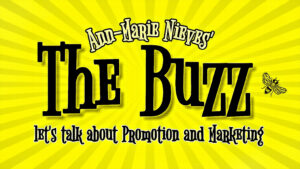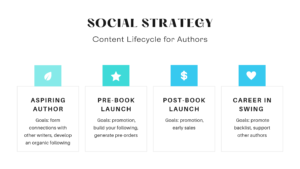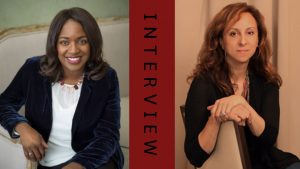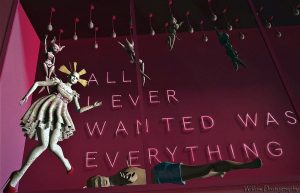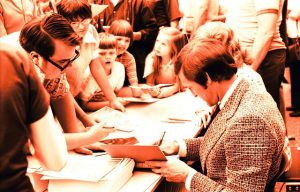Buzz, Balls & Hype
Image – Getty iStockphoto: Phonlamai Photo
Scaring Up Some Audiobooks
Recently, a distributor of digital books – both ebooks and audiobooks – announced that it was adding a new offering for publishers: “AI voicing” for audiobooks. The company could barely clear the word audiobooks before rushing to assure everyone that “AI narration” would never match the primacy of audio work using human readers and production. The caveat, going on and on, came across almost as an apology before any offense had been committed.
True, a certain resistance to the idea of machine-generated audiobooks is hardly eased by such headlines as Synthetic Voices Want To Take Over Audiobooks (Wired, January 27). No, they don’t. Synthetic voices don’t want to take over audiobooks. They don’t want anything. They’re synthetic. But book publishing is an industry that’s never accepted digital developments easily. Even after e-commerce and digital products played a key role in the US market’s comparative success during the still ongoing pandemic, those “synthetic voices” seem to murmur something sinister.
The many vendors now offering machine-generated audio narration know that this is the pushback to expect. It’s a mindfield of emotional reaction. They’re nervous about it.
Some defensiveness isn’t without reason. The business of gifted human narrators – who are actually readers, voice actors, interpreters, not narrators, the term has never been quite right – are supported by many additional workers in important roles. Those workers include sound technicians, audio editors, studio and tracking-booth providers, producers, in some cases directors, and more folks. Jobs are involved, and they comprise a lot of talent and many skill sets. Programs like the Audio Publishers Association support these workers, and the APA’s Audie Awards rightly honor their work in 25 categories.
Nevertheless, there are compelling reasons for publishers to listen to machine-generated audiobook readings. The kind of work they can handle is unlikely ever to be produced in human readings because of the cost factor.
As many publishing professionals readily agree, machine-produced voicings may be best for nonfiction, which is generally thought not to need the emotional and aesthetic nuance of fiction. But of course, in a great many cases, nonfiction is read by the human author, who may be untrained and inexperienced at the microphone. While there’s always someone asserting that those “synthetic voices” feature many mistakes in pronunciation, so does the work of many human authors.
Just days ago, I heard a very fine, prominent nonfiction author in his reading of his own book pronounce scathing with a short a, making that first syllable rhyme with cat. Most of us have had the experience of discovering, red-faced, that we’ve been pronouncing something wrongly for years. The audio edition of one of last year’s most important American political books was at times almost comical in its mispronunciations by its much-praised author. In both machine-generated and human-produced readings, proof-listening is critical to catch these things.
Still, the imperative for publishers regarding audio actually goes beyond nonfiction.
Read MorePhoto: Voltamax-60363
I was on the phone with author Barbara Taylor Bradford on Tuesday morning. We were just having a check-in to see how things were going in quarantine. I complained about my mornings of remote learning with my five and eight-year-old children. We both agreed that as women who have worked from home for years—she 40 and me 15—not much had changed for us in that respect. But having lived through WWII, she wanted me to know that it would be OK, that things would get better, that I had to have hope. She then commented that she was excited for the end of the day because after she completed a writing chapter of her next book, she would be shopping online for some Maybelline makeup. This was her reward for a chapter complete. This was the bright little ray on her day.
It made me smile.
In my last WRITER UNBOXED article, I discussed the positive movements in the book world since the pandemic. I’ve seen many a book launch since then, and as a publicist, I’ve been part of a few. Despite all the good, I’ll admit, there are days I feel less than hopeful.
With limited distribution, cancelled tours, fewer marketing dollars, media shifts and downsizes, and possibly decreased publisher support, many authors with books launching this spring are facing a challenge.
So I queried nine authors who have recently launched or are about to launch a new book. I wanted to know, as an artist, what or who gives them hope each day? And what gives them hope for your book despite this uncertain time.
I have to say, the power of US, is so very strong.
Richard Fifield, The Small Crimes of Tiffany Templeton, March 10
My second book was launched on March 7th. Three days later, the world shut down, and I had no live audience, no venues. I need an audience. On the computer, the camera creates a distance that cannot be closed. Last year, my mother died of leukemia, and I was holding her hand at the end, just the two of us, my laptop open, because I promised her that I would finish this book. She was my best friend, and in the last six weeks, I needed her. Our relationship was stormy, until I got sober in April of 2005. I did the work to make it better, and that work began with learning how to love selflessly, to find perspective. Fifteen years ago, I began walking the dogs at Animal Control, the worst dogs, the ones considered unadoptable, damaged beyond repair. I could identify with that. They were so grateful to see me, the real me, and it broke my heart that they had no idea they were set to be euthanized. I was spared, by the grace of something bigger than me, stopped from euthanizing myself slowly. I have adopted five of those dogs, learned to grieve without numbing myself, learned to love without the fear of loss. My rescue dogs rescued me, showed me how to love, and how to be loved. In the last six weeks, they remind me I’m fortunate to have published a book, no […]
Read MoreWarning: Hacks for Hacks tips may have harmful side effects on your writing career, and should not be used by minors, adults, writers, poets, scribes, scriveners, journalists, or anybody.
Most writers dream of making it big. But what does “making it” mean, exactly? The answer is different for everyone. There are lots of resources about how writers can make money and improve their craft, but today I want to focus on every writer’s purest motivation: to gain the validation, attention, and admiration of important and attractive people. That’s right, Famous Author Bill Ferris is talking about your level of famousness, which is a healthy and totally controllable thing for you to fixate on.
[Note that I’m differentiating between fame and success here. While a small handful of folks like Stephen King and J.K. Rowling have both, many writers have one without the other. Financial success is outside the scope of this column, but to find out more information on how to get rich as a writer, just Google “writing” and click on literally any search result.]
Writing is a never-ending and non-lucrative job, and if we can’t get paid in money, then we should expect to sign a few books for readers, to get recognized when going through the Drive Thru, or at the very least get some “likes” on social media (which is the true coin of the realm in the influencer economy or whatever).
To find your ideal level of fame, we need to identify what type of writer you are.
Type Zero: Fame? What’s That?
Motivation: You write what you write, and people can like it or not. You’re just doing this for you.
Ideal fame level: Your boss knows you write during your lunch breaks, but doesn’t take that as an indication that you’re slacking off on the job.
How you’ll know you’ve achieved it: You’re either a wild success or unpublished, and in either case, you’re already at your ideal level of famousness. So take your emotional maturity and well-adjusted priorities elsewhere, because the rest of us divas are trying to make a breakthrough here, okay?
Type 1: The Bestseller
Motivation: You want to get booked on every morning show, and go on months-long publicity tours so you can get laid in every time zone. You have an insatiable hunger for praise and validation, for someone, anyone to notice me. Er, I mean you.
Ideal fame level: You can’t leave the house without someone approaching, photographing, or cursing at you.
How you’ll know you’ve achieved it: 1. You’re a guest on a book podcast, and the host has actually read your book. 2. The subject(s) of your infamous tell-all book will no longer speak to you.
Read More- « Previous
- 1
- 2
- 3
- 4
- Next »

